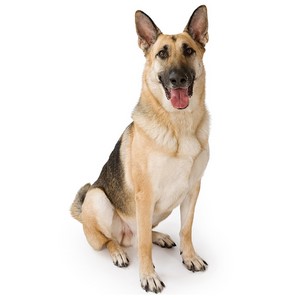German Shepherd Temperament
Wanting to get a German Shepherd Dog and wondering about German Shepherd's temperament or characteristics?
There are many reasons why you will fall in love with the German Shepherd Dogs as they are known for their Alert, Confident, Courageous temperament.
German Shepherd Dog Characteristics
- Alert
- Confident
- Courageous
- Curious
- Intelligent
- Loyal
- Obedient
- Watchful
- Gun dog
- Toy dog
- Utility Dog
- Hound dog
- Terrier
- Working dog
- Pastoral
How To Find a Dog With a Good Temperament
Recognizing why a breed was created, and the country and climate it originally came from, can help you understand what to expect in terms of behaviour and temperament.
Some breeds demand much more attention than others. A breed's true temperament can also take time to cultivate: the boxer's lively and extrovert nature means it takes longer to mature than other breeds.
The puppies of particular breeds could be very hard work in the early weeks but can make amazing adult dogs.
There are seven types of dogs:
What to do if you lose your German Shepherd
If your German Shepherd Dog or any other pet has gone missing and it does not have an identification tag with a phone number, you can:
1. Report your missing pet details at Pet Reunite website here.
2. Report the lost pet on the Local Lost Pets Facebook Groups Here.
3. Call the local vet clinics to see if someone has brought in your lost pet.
4. Telephone the RSPCA or Visit the RSPCA Lost Pets website and complete a Lost Pet Report.
5. Visit Lost Pets Pages of Animal Pounds.
What to do if you find a lost German Shepherd
If you find a German Shepherd Dog or any other pet and it does not have an identification tag with a phone number, you can:
1. Register the found pet details at Pet Reunite website here.
2. Register the missing pet on the Local Facebook Lost Pets Groups.
3. Call the Local Authority to collect the lost animal.
4. Take the pet to the local Animal Shelter near to your suburb.
5. Take the animal to the local Vet who normally scan the animal’s microchip and locate the registered pet owner.
Laws Regarding Missing Pets
1. It is against the law to keep any animal that you find.
2. Pets are generally considered property and it is illegal to take and keep someone else’s property.
3. You must contact your local animal control unit and file a FOUND AN ANIMAL report for any dog or cat you find.
4. To reclaim your lost dog, cat or other pet from the animal shelter you must pay a release fee.
5. If your dog or cat is unregistered, you will have to register your pet before you can take it home.

